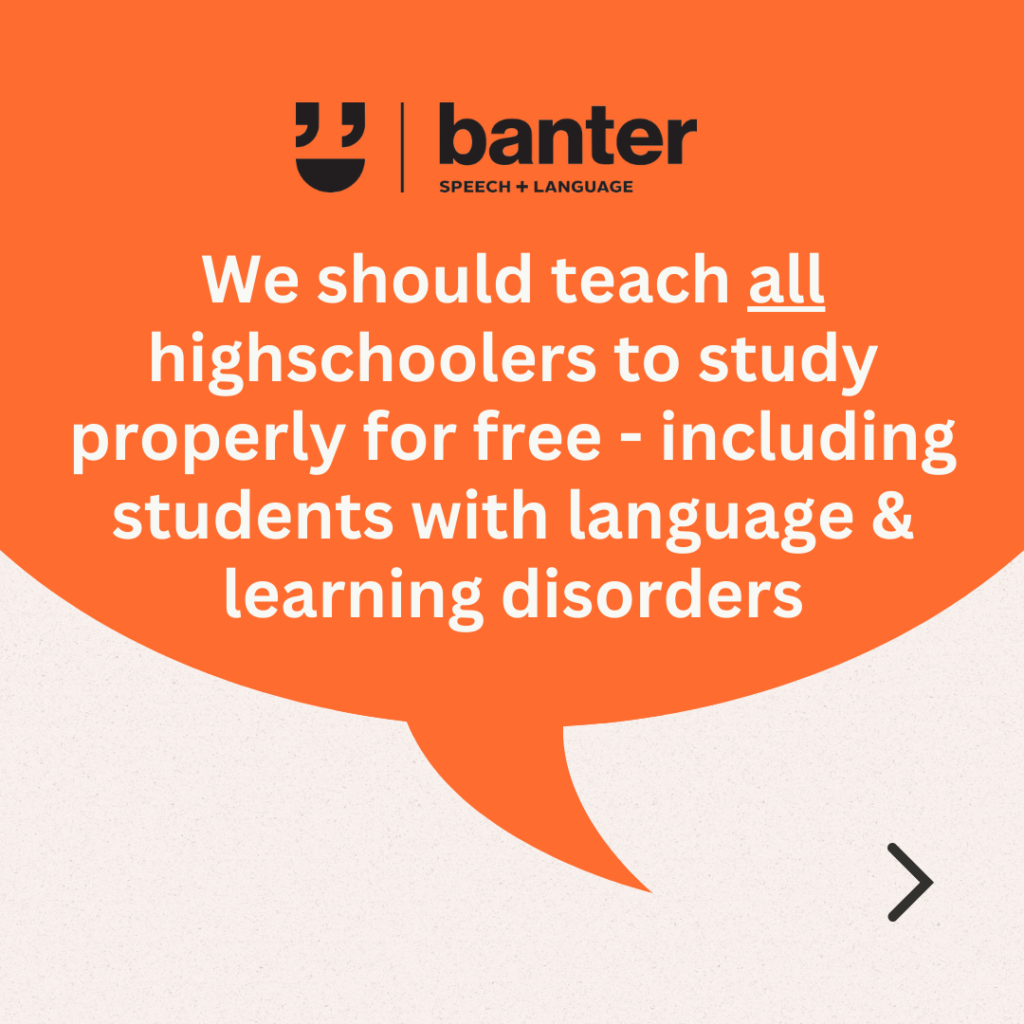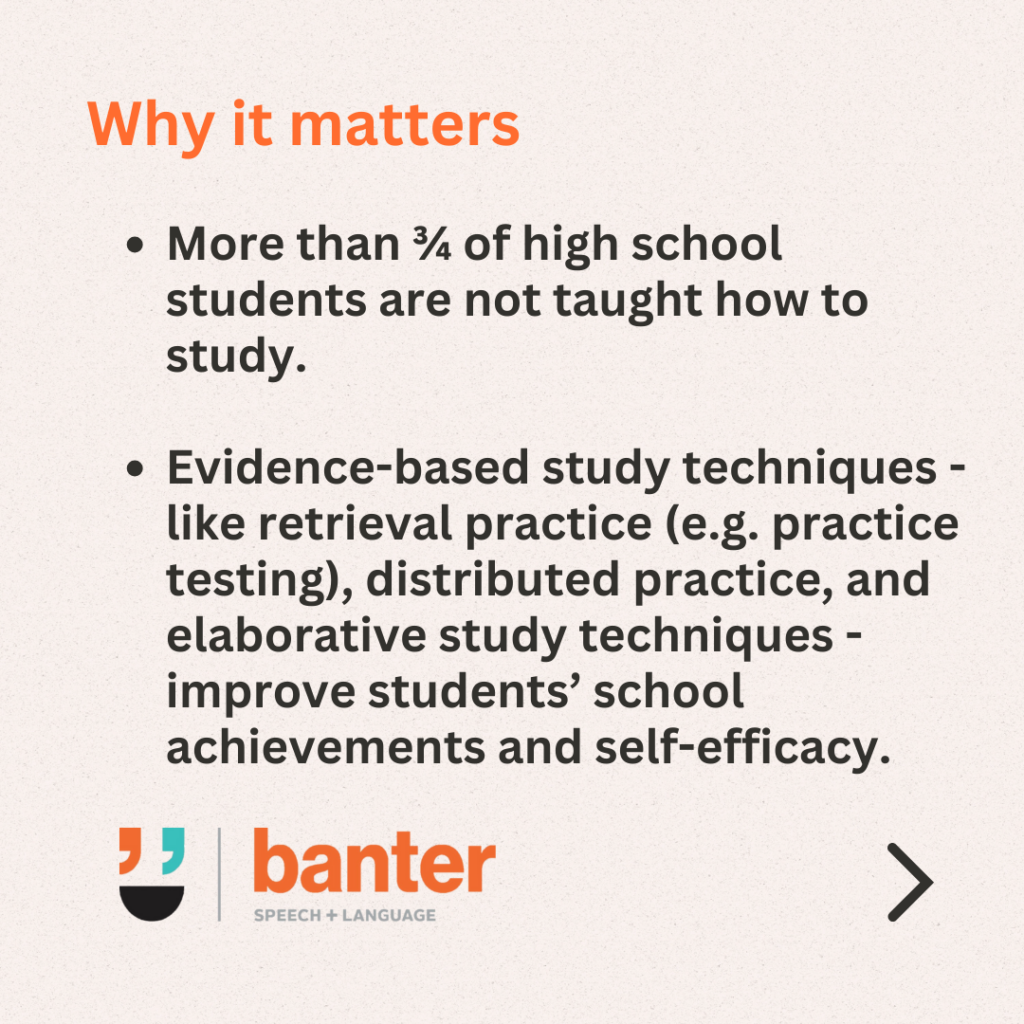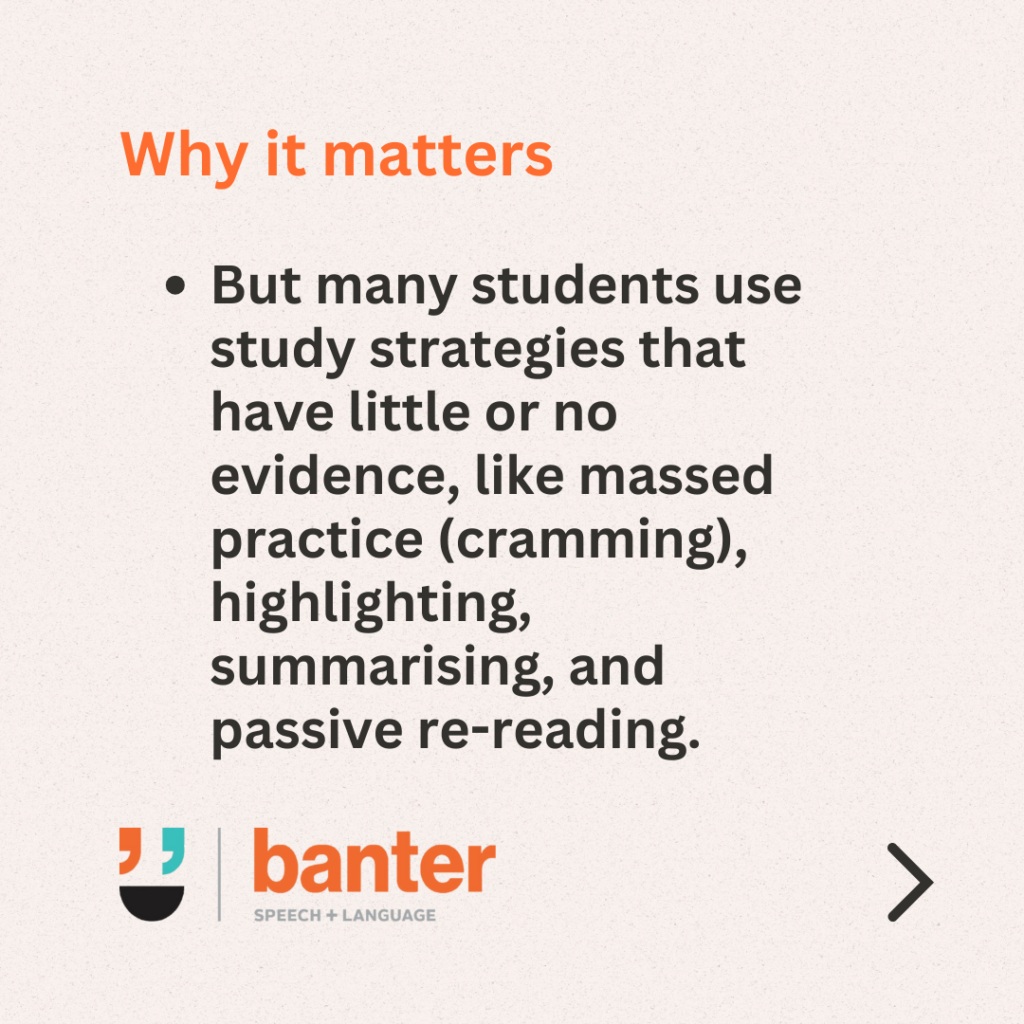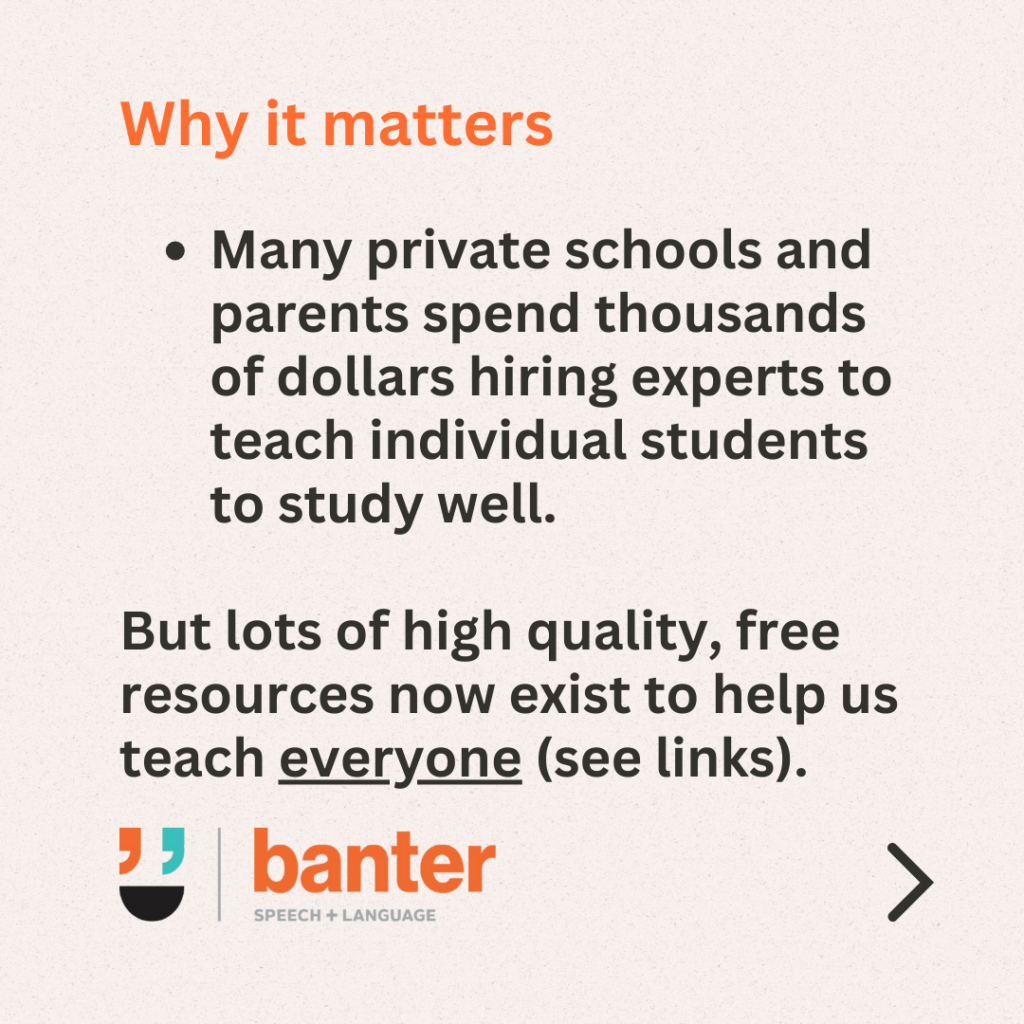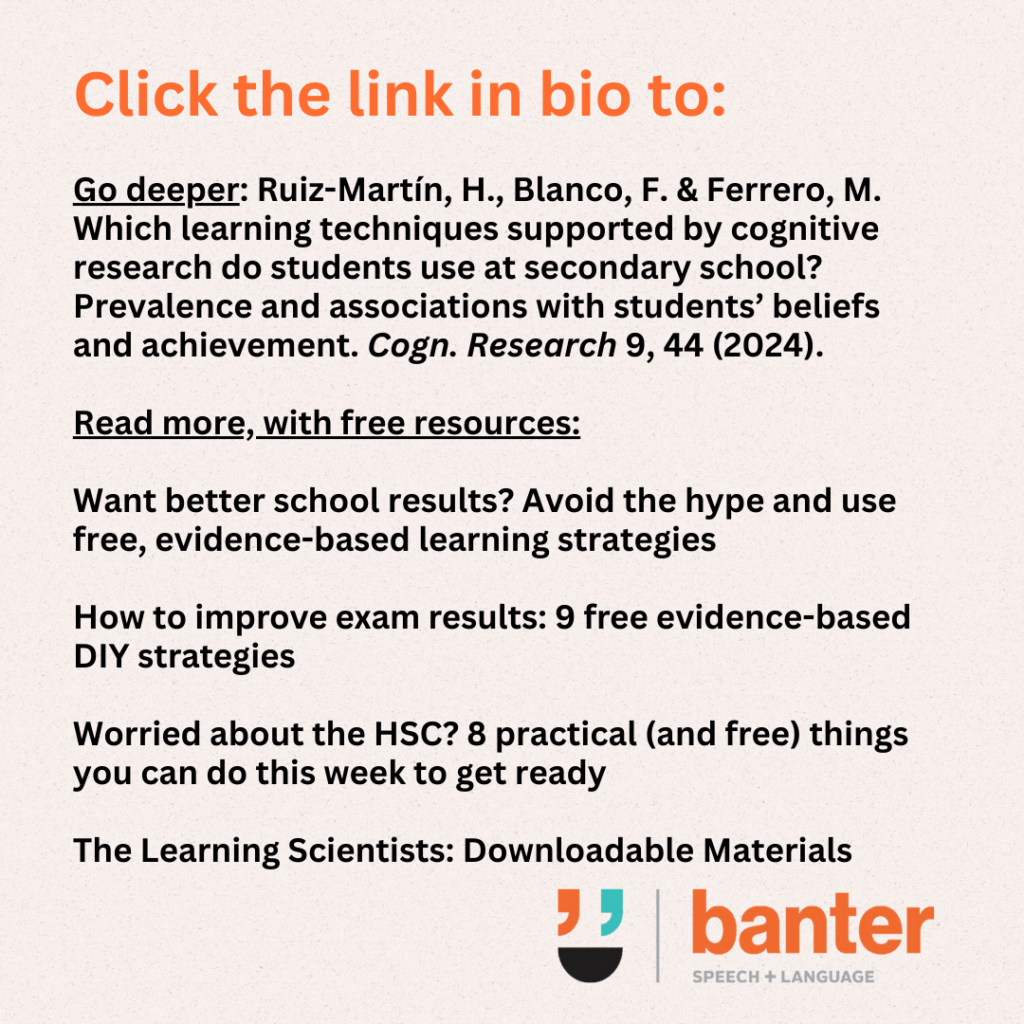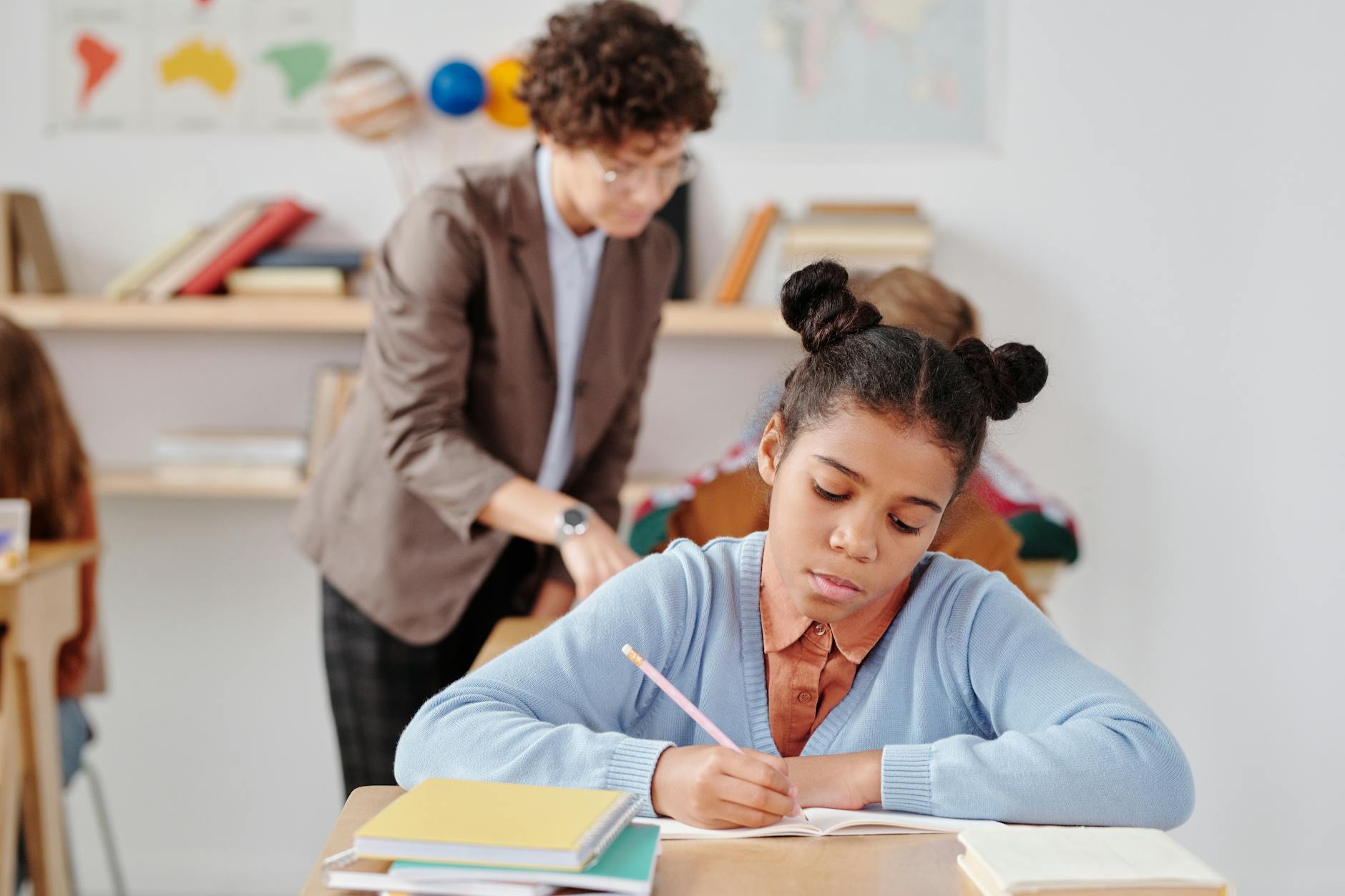We should teach all highschoolers to study properly for free – including students with language and learning disorders
Free, high quality information and resources are available to help us teach everyone how to study well – not just those who can afford special coaching.
Why it matters:
- More than ¾ of high school students are not taught how to study.
- Evidence-based study techniques – like retrieval practice (e.g. practice testing), distributed practice, and elaborative study techniques – improve students’ school achievements and self-efficacy.
- But many students use study strategies that have little or no evidence, like massed practice (cramming), highlighting, summarising, and passive re-reading.
- Many private schools and parents spend thousands of dollars hiring experts to teach individual students to study well.
- But lots of high quality, free resources now exist to help us teach everyone (see links below).
Go deeper:
Ruiz-Martín, H., Blanco, F. & Ferrero, M. Which learning techniques supported by cognitive research do students use at secondary school? Prevalence and associations with students’ beliefs and achievement. Cogn. Research 9, 44 (2024).
Read more, with free resources:
Want better school results? Avoid the hype and use free, evidence-based learning strategies
How to improve exam results: 9 free evidence-based DIY strategies
Worried about the HSC? 8 practical (and free) things you can do this week to get ready
The Learning Scientists: Downloadable Materials
This article also appears in a recent issue of Banter Booster, our weekly round up of the best speech pathology ideas and practice tips for busy speech pathologists, speech pathology students and others.
Sign up to receive Banter Booster in your inbox each week:

Hi there, I’m David Kinnane.
Principal Speech Pathologist, Banter Speech & Language
Our talented team of certified practising speech pathologists provide unhurried, personalised and evidence-based speech pathology care to children and adults in the Inner West of Sydney and beyond, both in our clinic and via telehealth.


